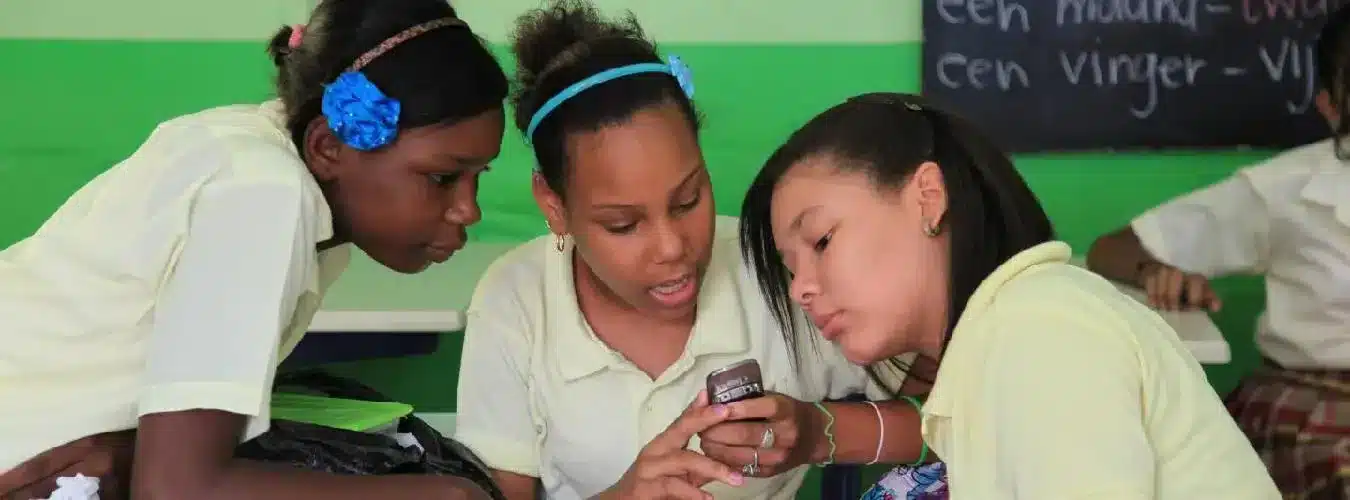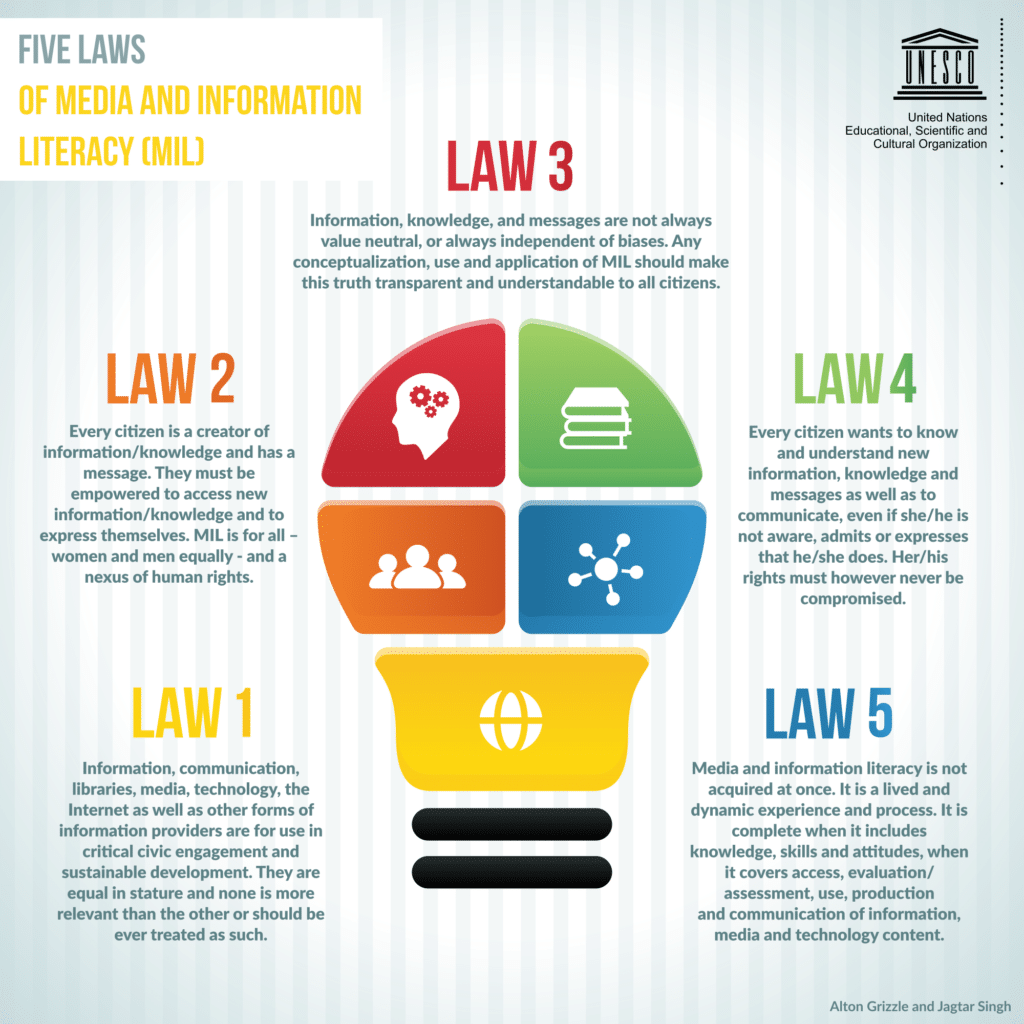lobal Media and Information Literacy Week and its Significance

While access to the Internet is increasing worldwide, millions of people still lack access to quality, credible information. PHOTO: © UNICEF/UNI120076/LeMoyne
Global Media and Information Literacy Week, commemorated annually, is a major occasion for stakeholders to review and celebrate the progress achieved towards “Media and Information Literacy for All.” The observation begins on 24 October and concludes on 31 October. Global Media and Information Literacy Week 2021 is hosted by South Africa. This year marks 10 years since the seeds of Global Media and Information Literacy Week were planted in 2011 in Fez, Morocco. This was long before the exponential rise in disinformation, political polarisation, increasing influence of digital platforms and the COVID-19 pandemic.
The Global Media and Information Literacy Week 2022 is hosted by Nigeria. Similar thematic days are International Day for Universal Access to Information which is observed on 28 September. World Telecommunication and Information Society Day is observed on 17 May. World Development Information Day is observed on 24 October.
Theme of Global Media and Information Literacy Week 2022
Global Media and Information Literacy Week, commemorated annually, is a major occasion for stakeholders to review and celebrate the progress achieved towards “Media and Information Literacy for All.” The theme of Global Media and Information Literacy Week 2022 is “Nurturing trust: A Media and Information Literacy Imperative”
What is Media and Information Literacy?
Information is essential for the optimal functioning of our brains. Information quality has a significant impact on our perceptions, beliefs, and attitudes. Information may be obtained from other persons, the media, libraries, archives, museums, publishers, or other information providers, including those on the Internet.
Access to information and communication has increased dramatically throughout the world. Despite the fact that some people do not have access to information, others are inundated with print, broadcast, and digital media. The goal of Media and Information Literacy (MIL) is to provide answers for the questions that we all ask ourselves at some point in our lives. Is there a way to access, search, critically assess, use, and contribute content wisely both online and offline? How do we protect our rights both online and offline? How should information be accessed and used ethically? How can we utilize media and ICTs to promote equality, intercultural and interreligious dialogue, peace, freedom of expression, and access to information?
Five Laws of Media and Information Literacy
UNESCO suggests the following Five Laws of Media and Information Literacy.
- Law1: Information, communication, libraries, media, technology, the Internet as well as other forms of information providers are for use in critical civic engagement and sustainable development. They are equal in stature, and none is more relevant than the other or should be ever treated as such.
- Law 2: Every citizen is a creator of information/knowledge and has a message. They must be empowered to access new information/knowledge and to express themselves. MIL is for all – women and men equally – and a nexus of human rights.
- Law 3: Information, knowledge, and messages are not always value neutral, or always independent of biases. Any conceptualization, use and application of MIL should make this truth transparent and understandable to all citizens.
- Law 4: Every citizen wants to know and understand new information, knowledge and messages as well as to communicate, even if she/he is not aware, admits or expresses that he/she does. Her/his rights must however never be compromised.
- Law 5: Media and information literacy is not acquired at once. It is a lived and dynamic experience and process. It is complete when it includes knowledge, skills and attitudes, when it covers access, evaluation/assessment, use, production and communication of information, media and technology content.

Quick Facts about Global Media and Information Literacy
Here are quick facts about Global Media and Information.
- On average, people spend about 142 minutes on social media every day.
- As of 2021, Asia was the region with the largest number of online users – over 2.8 billion at the latest count.
- The global internet penetration rate is 62.5 percent, with Northern Europe ranking first with a 98 percent internet penetration rate among the population.
- China, India and the United States rank ahead all other countries in terms of internet users.
- Facebook was the first social network to surpass one billion registered accounts and currently sits at more than 2.89 billion monthly active users.
- In 2022, Social networking sites are estimated to reach 3.96 billion users and these figures are still expected to grow as mobile device usage and mobile social networks increasingly gain traction in previously underserved markets.
History of Global Media and Information Literacy Week
The annual Global Media and Information Literacy Week, initiated in 2012, is led by UNESCO in cooperation with the UNESCO Media and Information Literacy Alliance, the UNESCO-UNAOC Media and Information Literacy and Intercultural Dialogue (MILID) University Network, and other partners. It is a major occasion for stakeholders to review and celebrate the progress achieved towards “Media and Information Literacy for All”.
The eleventh Global Media and Information Literacy Week will be commemorated from 24 to 31 October 2022 and will be hosted by Nigeria. Global Media and Information Literacy Week 2022 highlights will include the twelfth Media and Information Literacy and Intercultural Dialogue Conference and the seventh Youth Agenda Forum.
Observer Voice is the one stop site for National, International news, Sports, Editor’s Choice, Art/culture contents, Quotes and much more. We also cover historical contents. Historical contents includes World History, Indian History, and what happened today. The website also covers Entertainment across the India and World.

